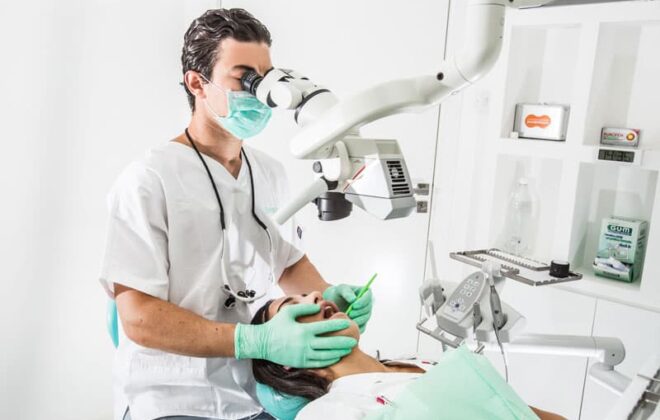5 Considerations After a Root Canal
Getting a root canal may seem like a frightening experience. However, the endodontists from York Hill Endodontics will work with you to ensure the most comfortable and efficient treatment. Pain from the root canal treatment can be avoided with anesthetics. Nonetheless, patients can still experience some discomfort afterwards. Those who require a root canal can follow some simple tips to ensure a smooth recovery.
Continue reading to learn more about your post-root canal recovery.
1. What can you expect immediately after the root canal?
The effects of the local anesthetics may last anywhere from 2-to-5 hours (and even longer in some patients).
Some individuals may experience pain after the anesthetics wear off. You may want to use over-the-counter pain medication if you experience discomfort. In rare cases, your endodontist may prescribe you a stronger painkiller to help manage any anticipated post-operative pain.
2. When/what can you eat?
It is highly advised that patients do not eat immediately after the root canal procedure. It takes 30-60 minutes for the temporary filling on your tooth to set. You may consume liquids during this period, but avoid eating any solid foods until 60 minutes have elapsed.
You may not have feeling in the area while you are anesthetized (or “frozen”). Therefore, avoid eating or drinking anything hot as you may not feel the heat and burn yourself.
When eating, be careful not to chew with the affected tooth and try to eat with the other side of your mouth. The biting surface of your tooth has been sealed with a temporary filling. This temporary filling is not meant to withstand normal chewing forces – as such, avoid any hard or sticky foods. Heavy biting forces may lead to fracture and loss of the tooth. It is critical that the temporary filling be changed to a permanent filling or a crown (cap) with your family dentist as soon as possible after your root canal treatment is completed.
Lastly, don’t forget to brush and floss your teeth every day – just brush a bit more gently around the sensitive areas.
3. What about swelling and inflammation?
Root canal treatment induces an inflammatory response in the supporting tissues surrounding the treated tooth. As such, your tooth and surrounding gum tissues may be tender or painful for several days. This discomfort is normal and is no cause for alarm. Our experience has shown that if there was pain prior to treatment, there will be a degree of pain that will persist for a few days after the procedure. As well, it is not unusual to feel pain when there was none prior to treatment.
Using cold compresses several times a day for 15-minute intervals can also help keep the swelling down.
4. How long will it take to recover?
Recovery time is usually quite quick and unremarkable but can vary depending on the person. Getting as much sleep and rest is the best way to experience a quick recovery. It is highly recommended that patients avoid exercising or strenuous activity that can cause discomfort.
Generally, it takes a few days at most for you to be feeling normal. In rarer circumstances, it may take a full week for the symptoms and sensations to fully settle. There are some recalcitrant cases where your endodontist may prescribe an antibiotic to assist with the healing process.
5. Is there anything else I should know?
Your endodontist will tell you exactly what to expect after the root canal procedure. While you can expect to recover in a few days, reach out and inform them if an unexpected situation arises. Unanticipated symptoms can include severe pain, excessive bleeding, increasing swelling, or even a fever.
Have more questions about your root canal? Get in touch with the endodontists at York Hill Endodontics for more information!



